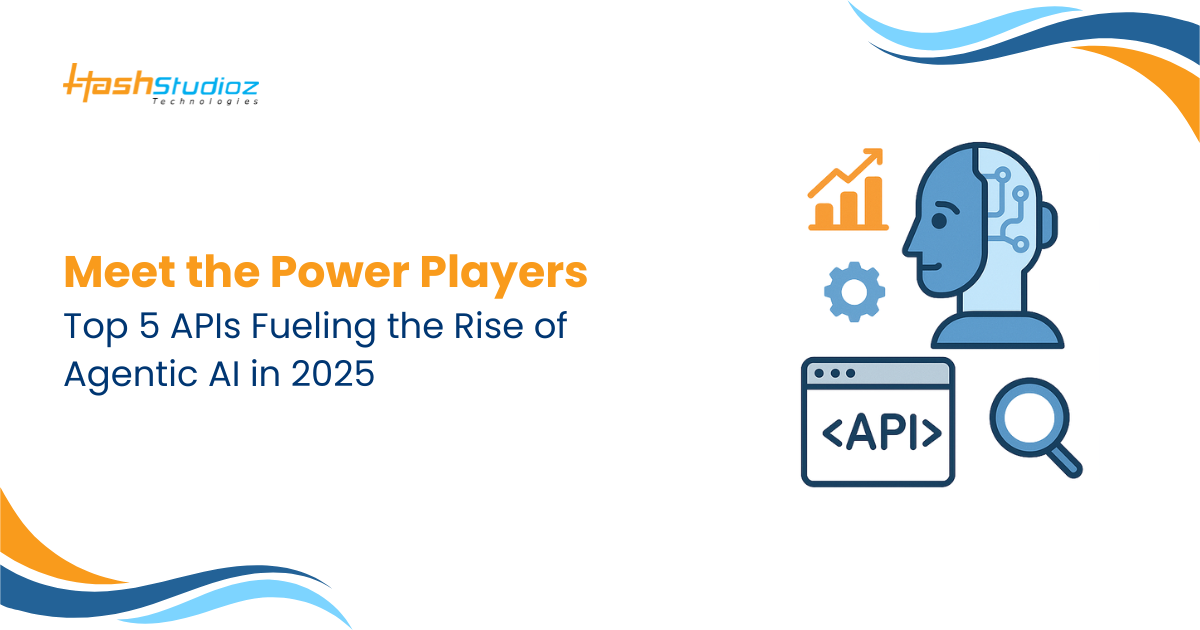In 2025, the AI world isn’t just about chatbots and copilots—it’s about agents. Autonomous, reasoning, task-executing AI agents are transforming how we interact with software, perform research, and automate business workflows.
Behind the scenes of these smart agents lie powerful APIs that act as their tools, memory, and environment. Let’s explore the Top 5 most used agentic APIs that are making autonomous AI a real-world force.
Table of Contents
1. OpenAI Function Calling API
The Brain Behind AI Decision-Making
OpenAI’s function-calling capability lets large language models decide which tool to use—and when. It’s like giving your AI agent a toolbox and letting it pick the right wrench.
- Why it’s game-changing: Enables dynamic task execution with structured arguments.
- Where it shines: Used in LangChain agents, AutoGPT, and OpenDevin to power decision-making logic.
2. LangChain Tooling & LangServe
The Modular Toolkit for Multi-Step Agents
LangChain has become the go-to framework for chaining LLM reasoning with tools like calculators, web search, and vector memory. Its agentic architecture supports planning, acting, and learning.
- Popular tools: Web search, calculators, file I/O, code interpreters.
- Used in: LangGraph, CrewAI, Flowise, and thousands of custom agent deployments.
3. Vector Database APIs (Pinecone, Weaviate, Chroma)
Memory That Powers RAG-Based Agents
Want your agent to remember previous conversations, documents, or user context? That’s what vector databases provide—semantic memory and retrieval for large-scale, context-aware reasoning.
- Why it’s crucial: Enables retrieval-augmented generation (RAG), the backbone of research, legal, and customer support agents.
- Key feature: Fast similarity search with embeddings.
4. Microsoft Graph + Copilot APIs
The Enterprise Brain for Automation
Microsoft’s APIs integrate AI agents directly into tools like Excel, Outlook, and Teams. With Copilot APIs, AI can summarize meetings, draft documents, and analyze spreadsheets.
- Where it’s used: Enterprise copilots and autonomous business assistants.
- Advantage: Trusted integration in real enterprise workflows.
5. Zapier / N8N API
No-Code Connectors That Supercharge Autonomy
These automation APIs are the Swiss Army knives of agentic systems—connecting AI to 5000+ apps like Gmail, Slack, CRMs, and Notion.
- Why it matters: Lets agents perform real-world actions—send emails, update CRMs, trigger alerts—without writing custom code.
- Use case: Smart agents that not only think, but act.

HashStudioz is a forward-thinking AI and product engineering company helping businesses harness the full potential of autonomous AI agents. With deep expertise in integrating cutting-edge APIs like OpenAI, LangChain, Pinecone, and Zapier, HashStudioz builds intelligent systems that can reason, remember, and act across workflows. Whether it’s developing agentic copilots, deploying RAG-powered assistants, or automating enterprise processes, HashStudioz empowers clients to stay ahead in the era of next-gen AI.

